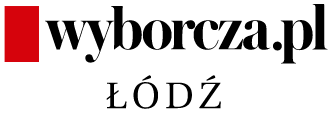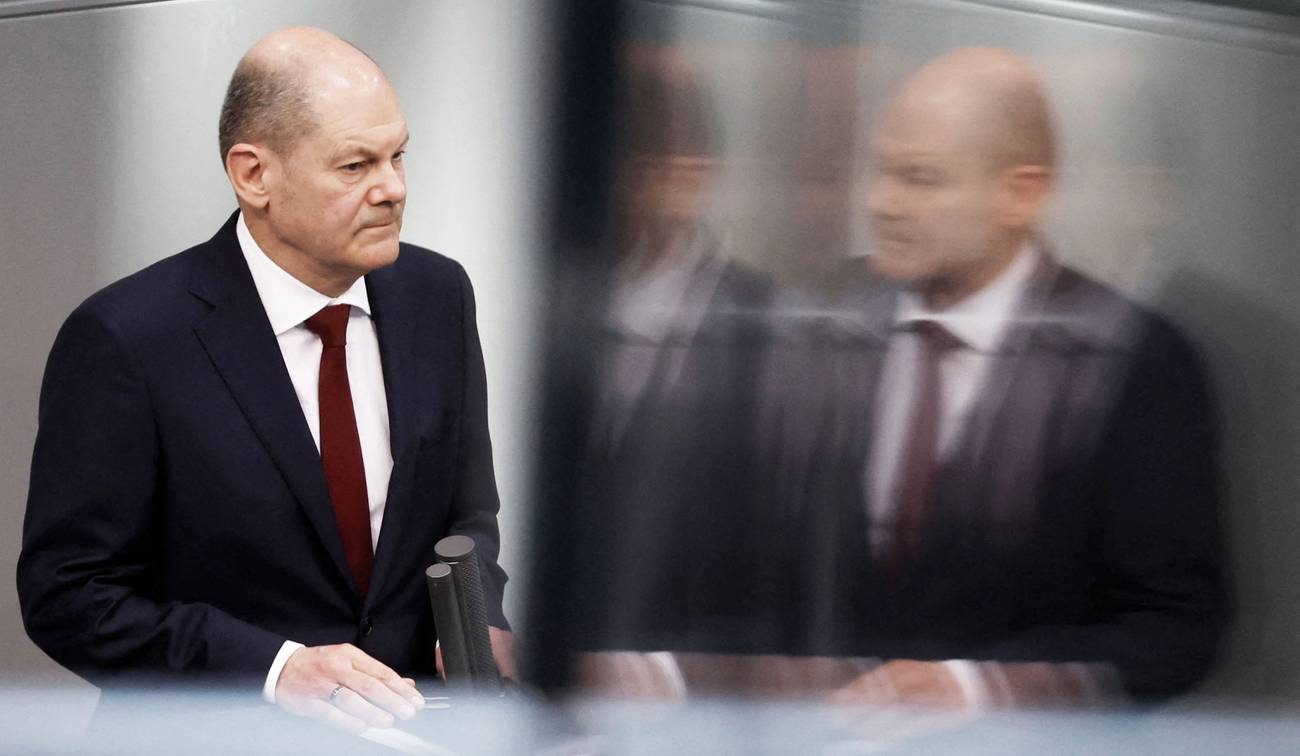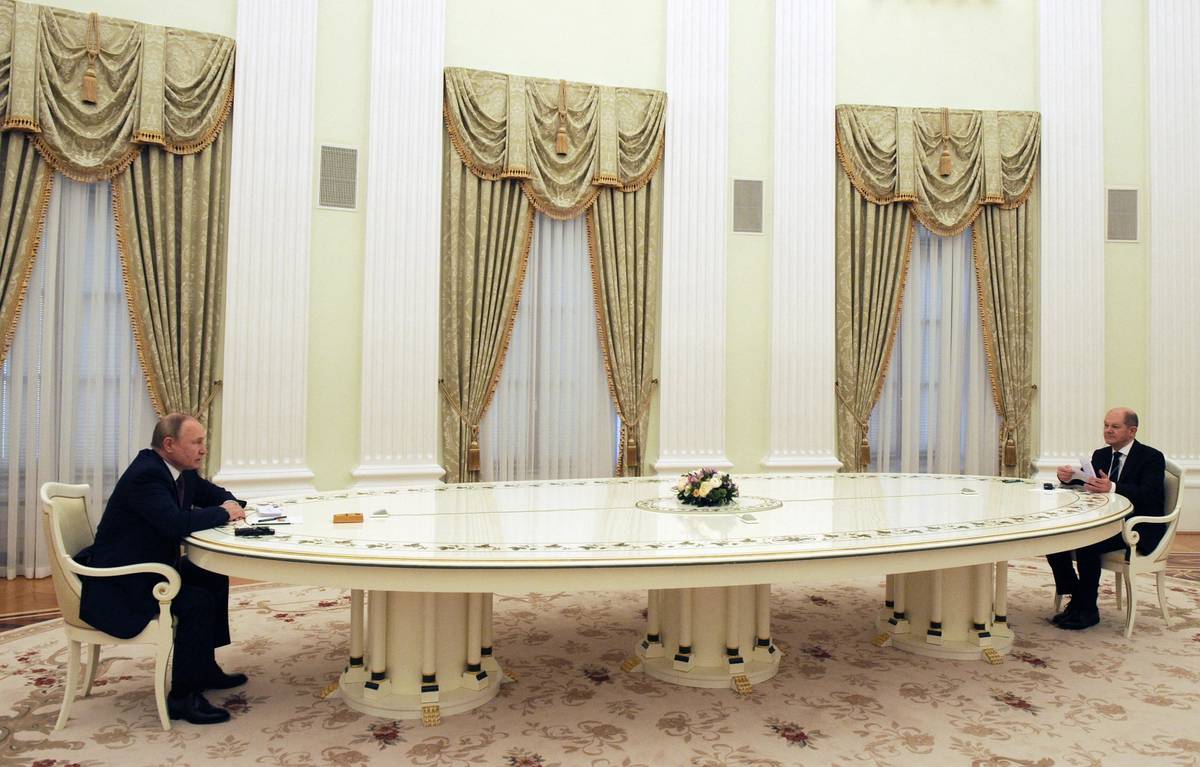 Ukraińskie rodziny na Dworcu Łódź Kaliska (fot.Tomasz Stańczak / Agencja Wyborcza.pl)
Ukraińskie rodziny na Dworcu Łódź Kaliska (fot.Tomasz Stańczak / Agencja Wyborcza.pl)
 “Mama została w Charkowie. Nosi kask od deskorolki. Innego nie ma”. Ukraińcy w Łodzi
“Mama została w Charkowie. Nosi kask od deskorolki. Innego nie ma”. Ukraińcy w Łodzi
Paweł Rutkiewicz
Wojna na Ukrainie. Irina pokazuje zdjęcie mamy, która została w odciętym Charkowie, jak siedzi w kasku od deskorolki. Matka na zdjęciu się uśmiecha, a córka zaczyna płakać. – Mieli tylko to – tłumaczy.
.
Dwaj Andrieje stoją przed poczekalnią na dworcu. Opierają się o barierkę i palą jednego papierosa. Andriej się zaciąga, podaje drugiemu Andriejowi. Ten kończy i wrzuca peta do śmietnika. Na dworzec przyjechali razem, ale wróci z niego jeden.
Drugi pojedzie na wojnę.
Wojna na Ukrainie. “Putin, idi na ch**”
Obaj są po pięćdziesiątce. Andriej, który jedzie na wojnę, jest wyższy, mniej rozmowny, jakby mocniej od towarzysza zaciąga się papierosem. Na dworcu Łódź Kaliska czeka na autobus, który w normalnych czasach jechałby do Czernichowa, ale teraz nie wiadomo, jak daleko dojedzie. W kasie dworcowej usłyszę, że w czasie wojny rozkłady jazdy stają się coraz bardziej teoretyczne. Na wschód od Kijowa nie jeździ już prawie nic. Tak samo na południe, w kierunku Odessy.
Andriej planuje dojechać do Żytomierza, 170 km przed Kijowem. Stamtąd przedostanie się dalej na południe, w kierunku Winnicy. W młodości był już w wojsku, więc teraz też się zaciągnie. Powód? Odpowiada krótko: wojna to wojna. W Polsce mieszka jego siostrzenica, ale jak przyznaje, nigdy nie myślał o tym, żeby sprowadzić resztę rodziny do Polski. Nikt zresztą opuszczać kraju nie chciał. Dlatego on jedzie do nich.
Drugi Andriej jest bardziej rozmowny – i jakby bardziej “wyrywny”. Sam zostaje w Polsce, bo – jak tłumaczy – jego rodzina jest już tutaj. Pomaga jednak jak może. Wracających na Ukrainę znajomych wozi na dworzec. I psioczy na Rosjan. – Rozmawiałem z kolegą z Rosji ostatnio przez telefon. Z dobrym kolegą, myślałem. Pracowaliśmy razem kiedyś. A on do mnie, że nas Rosjanie ratują. Przed kim nas oni ratują, pytam się? I że Ukraina na Rosję chce bombę zrzucić! – wścieka się Andriej i dodaje: – Jakbyśmy kiedyś zrzucili na nich bomby, to by już Rosji nie było.
Mój rozmówca nawiązuje do tego, że w przeszłości Ukraina miała bomby atomowe, ale oddała je Rosji po rozpadzie Związku Radzieckiego.
– I co pan mu odpowiedział? Temu koledze z Rosji?
– To samo, co bym chciał powiedzieć Putinowi.
– Czyli?
– Idi na ch**.
Pociągiem do Sum
Sumy to średniej wielkości miasto na północnym wschodzie Ukrainy. Położone zaledwie 160 km od rosyjskiego Kurska, skąd nadciągała jedna z grup uderzeniowych armii rosyjskiej, Sumy były jednym z pierwszych ukraińskich miast, do którego wkroczyli Rosjanie. Oprócz ostrzału artyleryjskiego miasto, choć znajduje się dość daleko od linii brzegowej, cierpiało też od rakiet odpalanych przez rosyjskie okręty na Morzu Czarnym. Pomimo tego miasto wciąż się broni.
Przed wojną Sumy miały ok. 260 tys. mieszkańców. Wśród nich wciąż są matka, żona, dzieci i brat Mieczysława, około czterdziestoletniego mężczyzny, który na dworcu Kaliskim czeka na autobus do Lwowa. We Lwowie wsiada w pociąg, którym dojedzie tak blisko Sum, jak będzie się dało. A potem zobaczy. W Łodzi zdążył pomieszkać raptem dwa miesiące. Czy nie myślał o tym, zamiast wracać na Ukrainę, sprowadzić rodzinę tutaj? – Najpierw musimy obronić kraj, gdzie jesteśmy u siebie. Potem możemy przyjeżdżać do was w gości – odpowiada.
Mieczysława, podobnie jak Andrieja, również odwiózł na dworzec kolega. Ma na imię Oleg i – jak twierdzi – na Ukrainę pojechać nie może. – Moja rodzina jest w Charkowie, a Charków jest całkiem odcięty. Tam nie da się dojechać – mówi Oleg. Niemożność dostania się do miejsca, w którym zostali jego bliscy, rekompensuje działaniem na miejscu. Pomaga w wyjazdach kolegom, którzy wracają do kraju i organizuje mieszkania ukraińskim uchodźcom.
Córka z Odessy uciekła przez Mołdawię, w Charkowie zostali rodzice
Półtoramilionowy Charków to drugie co do wielkości miasto Ukrainy i od początku wojny stanowi jeden z głównych celów rosyjskiej ofensywy. Brak pewnych informacji na temat tego, co dokładnie dzieje się wokół tego miasta. Prawdopodobnie miasto jest otoczone przez Rosjan, w związku z czym nie działa tam już żaden transport cywilny. Wciąż jedna się broni, a pojawiające się dotychczas informacje o jego zdobyciu przez Rosjan okazywały się fałszywe. Wiadomo, że trwają tam ciężkie walki. W poniedziałek, 28 lutego miasto ostrzelano salwą rakiet typu Grad. Celami były domy i osiedla. Spośród ludności cywilnej zginęło co najmniej kilkanaście osób.
Oprócz rodziny Olega w odciętym Charkowie zostali też rodzice Iriny i Mariny. Irina mieszka w Polsce od 18 lat. Marina, z kilkuletnią córką Alissą, uciekła do niej z Odessy. Irina pokazuje mi na telefonie zdjęcie, jakie przysłała jej matka. Uśmiechnięta kobieta – widać, że zadbana, choć posunięta w latach – siedzi na macie rozłożonej w wąskim korytarzyku. Na głowie ma biały kask, wygląda jak od deskorolki, a na kasku niebieskie rogi.
W bloku rodziców nie ma piwnicy, w której mogliby się schować, więc siedzą w korytarzu, żeby być daleko od okien. Rogi matka założyła, żeby było śmieszniej, albo żeby córka się nie martwiła. Jednak w kasku chodzi cały dzień. Dlatego córkom nie jest do śmiechu. Wiedzą, że w razie uderzenia pocisku kask na niewiele się zda, ale tylko taki mieli.
– Jedzenia zostało im jeszcze na parę dni – mówi Irina. I nie może powstrzymać łez.
Z Odessy, trzeciego co do wielkości miasta Ukrainy, da się dziś uciekać tylko przez Mołdawię. Podróż trwała trzy dni. Marina i Alissa najpierw próbowały dostać się do granicy ze znajomymi, którzy z rocznym dzieckiem uciekali samochodem. Na cały dzień utknęli w korku, a dziecko w końcu zmusiło ich do powrotu. Marinie udało się kupić bilety na autobus do Kiszyniowa, tam znalazły nocleg przez znajomych znajomych. Następnego dnia, busem, Marina i Alissa dostały się do granicy rumuńskiej, gdzie złapały pociąg do Jassy. To miasto na północnym wschodzie Rumunii, do którego Polskie Linie Lotnicze LOT przeniosły połączenie do Warszawy z Kiszyniowa – po tym, jak Mołdawia zamknęła przestrzeń powietrzną dla samolotów cywilnych. Bilet na lot siostrze i siostrzenicy kupiła z Polski Irina. Z Warszawy do Łodzi przyjechały pociągiem, ale spotykam je przy punkcie informacyjnym dla Ukraińców, który działa od strony dworca autobusowego. Na razie zatrzymają się u Iriny, ale próbują się dowiedzieć, czy Alissa będzie mogła chodzić w Polsce do szkoły.
Marina dodaje, że w Odessie został jej mąż. Powołania do wojska jeszcze nie dostał, ale jako mężczyzna w sile wieku wyjechać z Ukrainy nie może.
Ze wschodu na zachód. “O wojnie dowiedziałam się z telewizji”
Około dwustu kilometrów na południowy zachód od Charkowa leży około milionowe Dnipro (dawniej Dniepropietrowsk), skąd do Łodzi przyjechała Julia z siostrą, synem i ojcem. To miasto położone zaledwie 200 km od zajętego przez separatystów Doniecka. Tam Julia nie widziała jednak bombardowań. Wspomina, że czwartek, 24 lutego – dzień, w którym zaczęła się rosyjska inwazja – spędziła łóżku, oglądając w telewizji serwisy informacyjne. Nie miała pojęcia, co innego mogła zrobić. W telewizji widziała rakiety spadające na ukraińskie miasta. Większość z nich – jak twierdzi – strącało ukraińskie wojsko, lecz mimo tego postanowiła wyjechać.
W Dniprze rosyjska ofensywa skupiła się głównie na pobliskim lotnisku i bazie wojskowej, lecz po drodze do Polski widziała, że inne miasta nie miały tyle szczęścia. Rakiety spadły m.in. na 250-tysięczny Żytomierz (to tam w Rosja wystrzeliła w niedzielę iskandery). Doszczętnie zniszczone mają być miasteczka Irpeń i Wyszogród na obrzeżach Kijowa. A ciała zabitych? Są, ale Julia jest przekonana, że głównie rosyjskie.
Julia cieszy się, że jest w Polsce. I że wraz z synkiem jest już bezpieczna. Na początku pomoże im Aleksander, który w Polsce mieszka już pięć lat. W Dniprze została jeszcze jego matka, która wyjeżdżać jednak nie chce.
Zawartość publikowanych artykułów i materiałów nie reprezentuje poglądów ani opinii Reunion’68,
ani też webmastera Blogu Reunion’68, chyba ze jest to wyraźnie zaznaczone.
Twoje uwagi, linki, własne artykuły lub wiadomości prześlij na adres:
webmaster@reunion68.com






